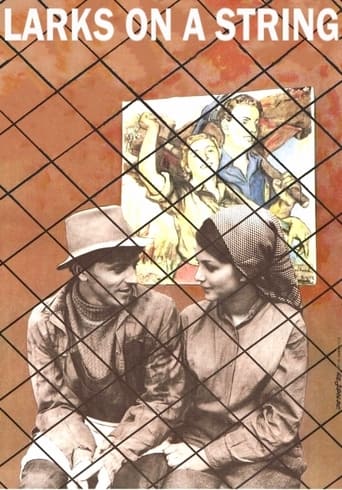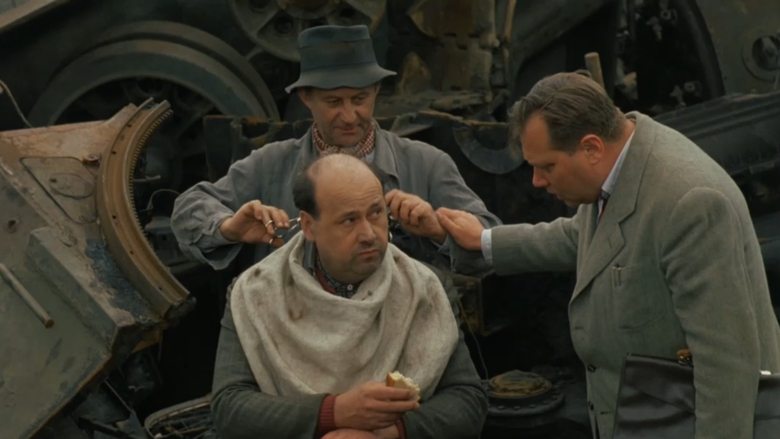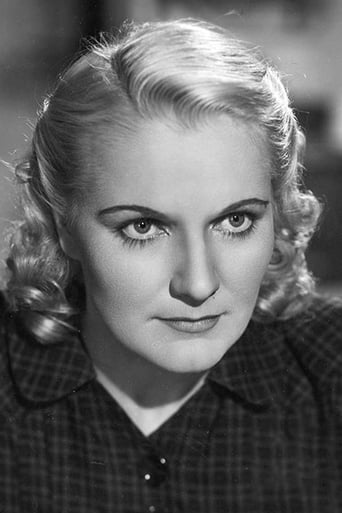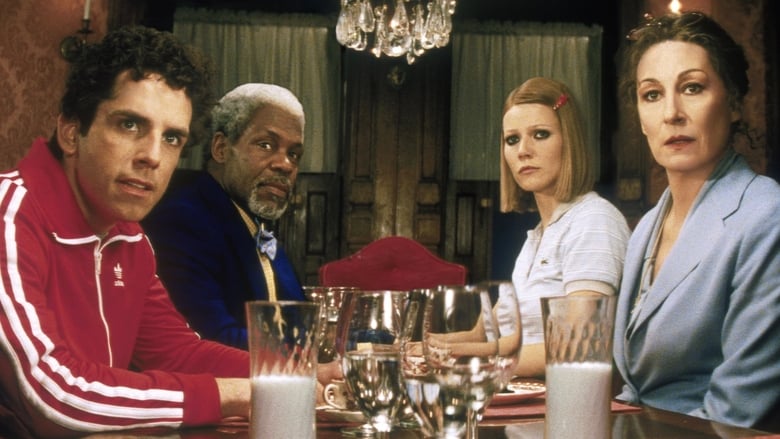In post-WWII Communist Czechoslovakia, several characters considered bourgeois are sentenced to work in a junkyard for rehabilitation. Among them is a young man who pines for a female convict.


Similar titles
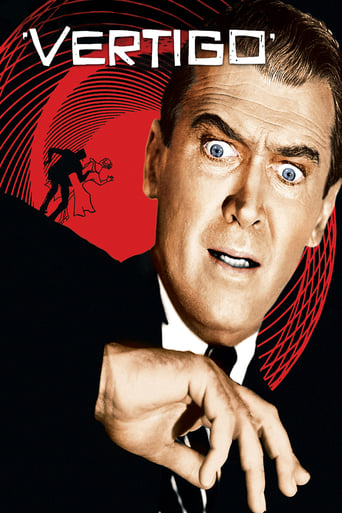

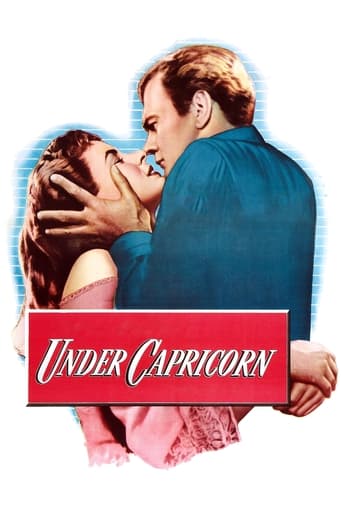
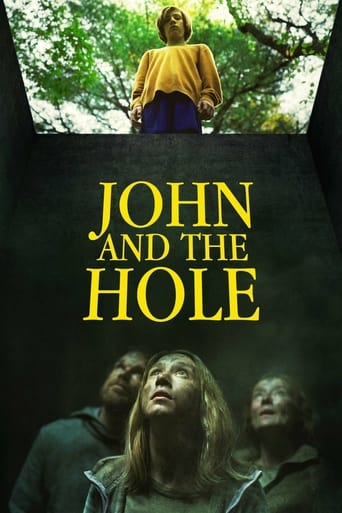

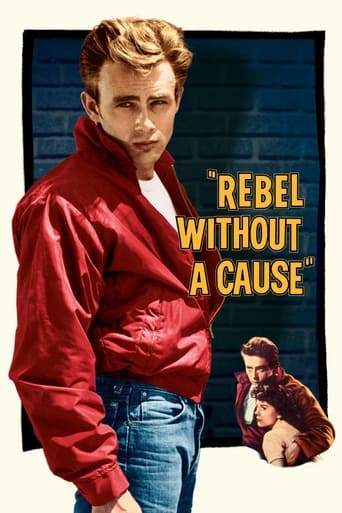
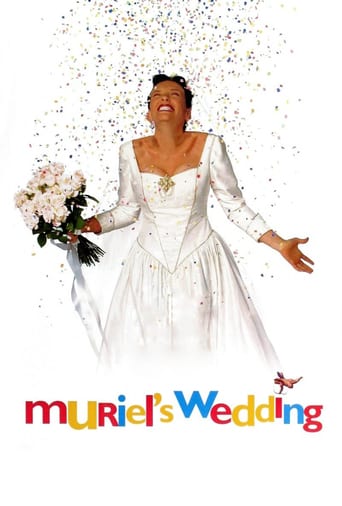
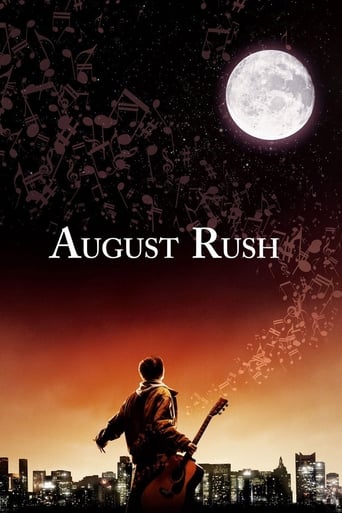

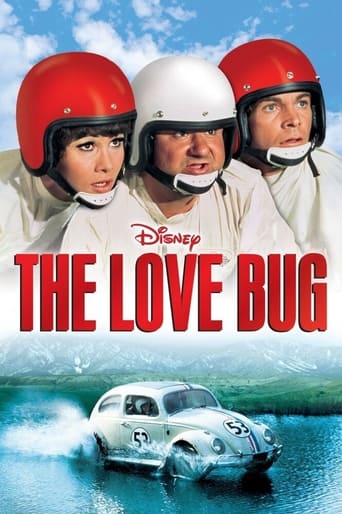
Reviews
It's 50 years almost day-to-day since the Red Army and the armies of several "fraternal" states invaded the Czechoslovak Socialist Republic and put an end to the experiment of socialism with a human face that had been tried by Alexander Dubcek and the Czechoslovak Communist leadership. I do not know whether it is a coincidence or not, but the timing was excellent for the screening and viewing of Jiri Mendel's 1969 film 'Skrivánci na niti' ('Larks on a String') as part of the Czech film festival in Israel, a film that could not meet with its audience for 20 years, as it was banned by the communist censorship until the fall of the regime. For the audience in my native Romania who lived during communism, Mendel's film will not only show themes and situations similar to those they lived, but its fate will remind the one of the film 'Reconstituirea' ('Reconstitution') made in the same period in Romania by Lucian Pintilie: The same attitude of protest and resistance, the same subtle symbolism, the same sympathetic approach to the characters, and ultimately a similar fate - the film was banned by censorship and kept 'on the shelves' for twenty years. The action in 'Skrivánci na niti' is placed in time in the early 1950s when the Communist dictatorship began to consolidate and 'class enemies' were sent to forced labor or prison for the guilt of having belonged to the 'bourgeois classes' or for the crime of trying to escape from the 'socialist paradise'. The setting is symbolic - a plant where industrial waste is brought to be transformed into useful objects, and the people who robot are the human waste that needs to be re-educated to become the 'new type of human beings'. Those who turn out to be non-educated disappear, arrested by the political police and forced into the car that will lead them to more severe prison or labor camps, the next stage of repression. Unlike Lucian Pintilie's Romanian film, which was an exception, Jiri Mendel's creation was part of a more developed cinema school, with creators like Milos Forman, Vera Chytilová or Mendel, who managed to create several remarkable films demonstrating that - within the limits of the communist censorship tolerance - making quality films was possible even behind the Iron Curtain. The look that Mendel throws back in those years of relative hope for Eastern Europe toward the beginning of the communist era is not characterized by anger or hatred. The characters of the period are presented in their humanity, even the prison guardians or the bureaucrats of the regime are surprised in situations that make them ridiculous rather than abject. Criticism is especially directed against the system, with all its power to oppress and is absurdity worthy of Kafka's country. Visual power and acting are remarkable. Jiri Mendel's film made half-century ago, has successfully passed the exam of time.
Seeing the film "Larks on a string" is one of those surprises, that make life pleasant. It reminds of the famous Charlie Chaplin film "Modern times", so need I say more? The main characters run the risk of being crushed by the anonymous system, but they are somehow saved by their decent nature. Indeed "Larks on a string" ends with the incitement to "find yourself". Still it is not a banal remake of "Modern times". In fact the many stereotypes and the surrealistic scenery (mainly a depot for disposed metals) remind of the Monty Python shows. The film was banned by the Leninist state, and therefore western spectators tend to assume that it must be critical about the system. However, this is not self-evident. Remember that the state financed its production in the first place! Indeed the scripts of Leninist films are often critical, but they target the human nature, and not the system! On the other hand in this case the narrative is truly atrabilious in its view on society. The only decent people appear to be the outcasts, the caught fugitives, and surprisingly the president. The president is unworldly, and seems to miss out on what happens around him. In fact his attitude is rather confounding, for without him the film would be just a criticism of the former Stalinist regime. The scenes of the prison camp (including barracks with straw mattresses, barbed wire and watch towers), the security police and the prison guards are depressing. Fortunately they are ridiculed in a Chaplin-Monty-like way, which is quite funny. For instance the guard falls in love with a picture of an angle and two children. The propaganda officer has glasses like saucers. The pioneer leader shows the fugitives to her class, and sighs: "The fascist beast never sleeps!" The little pioneers themselves try to tie red scarfs around the necks of the outcasts. The security officers drive around in an old nazist luxury car, and they seem to be everywhere. The outcasts are transported to the railway station in order to cheer the visiting president. The trade-union leader puts on a cap, when he enters the mill. There is a moving scene, when the fugitives and outcasts form a chain and hand on what appears to be cartridge shells. And of course there is the Chaplin-like innocent love affair between a fugitive and an outcast. Since she is imprisoned, they marry "by proxy" (a find of the local party official). In short, "Larks on a string" is recommended warmly. In order to really appreciate the mockery, you might consider seeing a "serious" Leninist film. For instance, "Spur der Steine". There are plenty among my reviews. And don't forget to comment, I love it!
The Czech film Skrivánci na niti was shown in the United States with the title, Larks on a String (1990). The release date should really be 1969/1990. Writer-director Jirí Menzel completed the film in 1969. The Prague Spring was crushed by Soviet tanks in 1968. Possibly Menzel thought that some trace of the cultural liberation remained, but that clearly wasn't the case. The film wasn't officially released until after the Velvet Revolution freed Czechoslovakia from Soviet domination.The plot of the movie revolves around two groups of political outcasts. The Larks on a String are women prisoners who have received one-year prison sentences for attempting to escape from Czechoslovakia. They are working in a junk yard, where they can see a group of men working who are being "rehabilitated." I think the men were not actually considered prisoners. They had been guilty of "bourgeois activities," and were sent to the junk yard as a type of punishment. While they weren't larks on a string, they lived and worked under definite restrictions.One restriction that members of both groups suffered was the inability to interact closely with members of the other group. They could see each other, signal each other, and shout to each other. However, that was all they could do.The women didn't appear to have any process for complaining about their conditions. As I understood it, the men were still considered workers, and so they had channels through which to complain. The problem was that anyone who complained too much ended up in jail. This was definitely not a worker's paradise.In this movie people are endlessly trying to relate, being caught, being punished, and then trying again. In a way it's a frustrating, discouraging movie. But, in another way, it's a credit to the characters in the film--and to the people of Czechoslovakia--that they continued to struggle and never lost hope.We saw this movie at the Lincoln Film Forum, as part of the excellent Romanian Film Festival. (The Romanian Festival screens some movies from other Eastern European countries.) The movie should work well on the small screen. It's a great film-- find it and see it.
Set in a scrap metal yard at the great Kladno steelworks, at the time of its making (just as the Prague Spring was being terminated by the Russians) this was seen as a satirical attack on the Communist regime, which got both film and director Jiří Menzel banned for several years (the film was not released until 1990). How such a gentle film could be seen as so subversive now seems incredible nearly 4 decades later.Sorry, Liehtzu, but it couldn't possibly be better than the sublime "Closely Observed Trains"! Maybe this is because that film is so timeless, whereas "Larks on a String" seems to have dated less well; it is now more of a series of formless sketches of erotically charged comedy, in which the Czech spirit always manages to triumph over oppression and even the "villains" elicit a certain sympathy.Even so it is a gem of a film, witty, quirky and subtle, in which a bunch of renegade intellectuals, sent literally to the scrapheap, put the world to rights and try to engage with the pretty girls working over the metal mountain.The DVD available in the Czech Republic (R2) has rather unreliable English subtitles, so much of the biting dialogue is lost in translation; still a wonderful film though.
